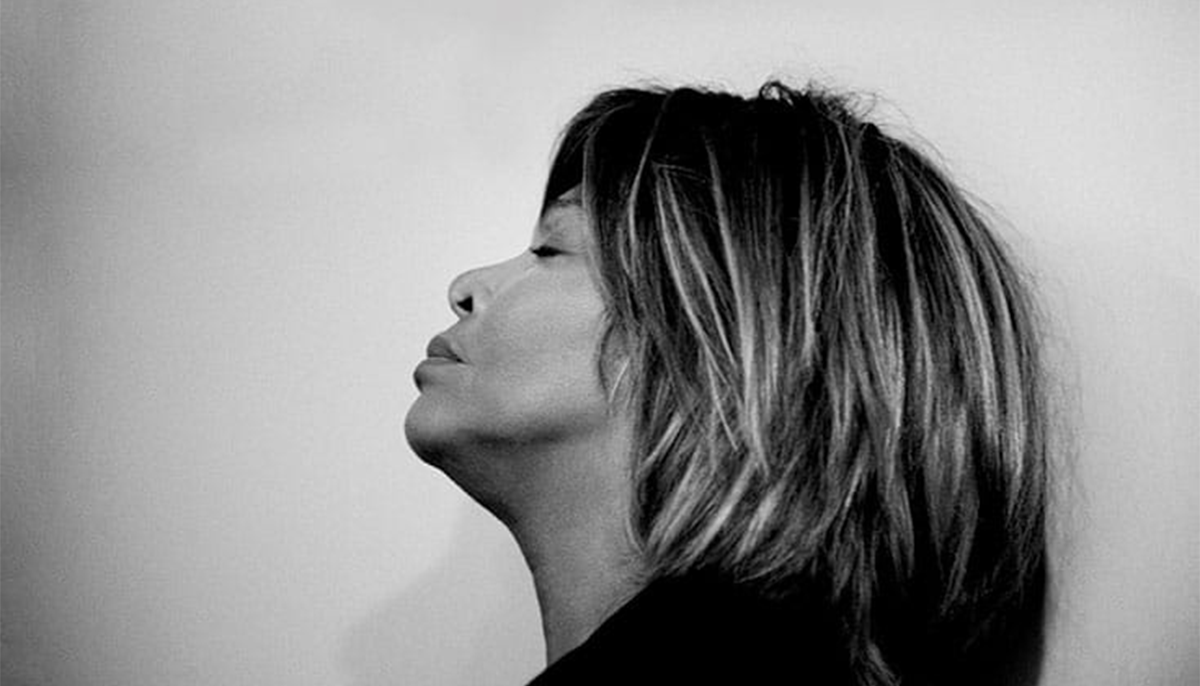Constant Craving, Part I
Pop artists have been integrating Buddhist themes, such as living in the moment and suffering caused by desire and craving since the very advent of pop music. Certain pop stars, however, have taken their engagement with Buddhism to new levels. Laurie Anderson and her famed, late husband Lou Reed would reflect their own dharma studies in their later work, and poet/balladeer Leonard Cohen would take up a serious Zen practice in the nineties.
Ask people about Buddhism and modern music, and you’re almost certain to hear a comment about k.d. lang’s lush and enduring 1992 hit, with its lyrics of longings never fulfilled: “‘Constant Craving’ is all about samsara.” Even Buddhists who don’t know that lang is a dedicated practitioner seem to make the connection.
“I think dharma has been a part of who I am, in this lifetime, since before I found my teacher,” says lang. “When I met Lama Gyatso Rinpoche, I felt immediate connection and devotion, and then dedicated the next ten years, until his passing, to him. I still continue giving my ‘civilian life’ to dharma.”
No survey of Buddhism’s impact on music would be complete without mentioning Adam Yauch of the Beastie Boys. In the ’80s, The Beastie Boys rose to fame on the strength of raucous party anthems “(You Gotta) Fight for Your Right (To Party)” and “Brass Monkey.” The mid-’90s, however, found the rap group’s music turning toward a spiritual direction with songs like “Shambala” and “Bodhisattva Vow.” “As I develop the awakening mind I praise the buddhas as they shine,” raps Yauch on the latter song. “Respect to Shantidiva and all the others/Who brought down the dharma for sisters and brothers.” Yauch invited monks from Tibet to perform on the Lollapalooza tour; he founded the Milarepa Fund, an organization that supports Tibetan independence. When Yauch died from cancer at the age 47, a spokesperson for the Dalai Lama quoted His Holiness as saying, “Adam had helped us raise awareness of the plight of the Tibetan people by organizing various freedom Tibet concerts and he will be remembered by His Holiness and the Tibetan people.”
In the music world, the story went something like this: In his late middle age, after a lifetime of wine, women and words, Leonard Cohen swore off music to become a Buddhist monk. The truth is a little more nuanced. In the ‘70s, Cohen began visiting Mount Baldy Zen Center. After studying Zen Buddhism for years, Cohen became a monk in the mid-’90s, going by the name Jikan which means “noble silence.” Cohen, however, returned to the public eye after his time spent in reclusion, inspired by his time at the Zen center. Zen themes also make appearances in Cohen’s poetry, especially in his Book of Longing.
Much like Leonard Cohen, “The Queen of Rock ‘n’ Roll”, Tina Turner’s Buddhist journey began in the ‘70s and deepened from there. Unsurprisingly, much of the R&B legend’s connection to Buddhism comes by way of sound—specifically, chanting Nam-myoho-renge-kyo (“I devote myself to the Lotus Sutra”), the key practice of Nichiren Buddhism and of Turner’s Buddhist community, Soka Gakkai International.When asked about how it has made a famously difficult life better, Turner says: “I feel at peace with myself, happier than I have ever been, and it is not from material things. Practicing the words Nam-myoho-renge-kyo for so long has put me in another frame of mind, so that even when I don’t practice for a day or a week, I still feel happy. But I do practice. The chant makes you comfortable because it removes uncomfortable mental attitudes.”
Dabbling in a plethora of musical forms – from classical chamber music to disco to country to pop – Arthur Russell defies categorization, but the one constant thread throughout his oeuvre might just be Russell’s Buddhist practice. Russell studied Vajrayana Buddhism under the guidance of Yuko Nonomura. Rod Meade Sperry talked to Audika Record’s Steve Knutson about musician Arthur Russell’s posthumous album Iowa Dream on the Lion’s Roar Podcast. Listen here.
Another artist who draws inspiration from the dharma is RZA of the legendary rap group, the Wu-Tang Clan. From the group’s landmark release Enter the Wu-Tang (36 Chambers) to his movie soundtracks (Kill Bill, Ghost Dog), RZA’s creativity seems boundless. “When I was in China I saw all these different buddhas,” reflected RZA when he spoke with Lion’s Roar. “I saw a big fat buddha. I saw the regular buddha standing. I saw the crying buddha. I saw the drunken buddha. And it hit me as a revelation that these are the different ways to get to enlightenment.”
Additional pop figures such as Boy George, Courtney Love, Belinda Carlisle, and Duncan Sheik, as well as the late songstress Phoebe Snow, have also engaged in the practice of Nichiren Buddhism. Devendra Banhart practices Rasayana Buddhism. Kaia Fischer of the indie band Rainer Maria is also a follower of Tibetan Buddhist philosophy.
Constant Craving, Part II
A whole new generation of pop artists are turning toward Buddhism. The rapper performing under the moniker “nothing, nowhere” told Fader in 2018: “In Buddhism, your Dharma is your gift that you can give to the world — your unique set of skills and talents. Music and songwriting is my Dharma.” Additionally, Earl Sweatshirt claimed in a recent interview to have returned to Nichiren Buddhism after spending his teenage years away from the practice. In 2017, Bustle ran a feature on Nitty Scott, a queer Buddhist rapper making waves in the hip hop scene. Around the time she recorded her second album, she discovered Zen Buddhism. “The practices,” she reports, “bring me peace.”
Another hip hop artist to find both peace and instruction in Buddhism is Born I.“Sex, music, and religion—those things are in constant interaction in my songs,” says the rapper/producer. “There’s a dharma-piece in everything I do.”
Born feels that such genuine happiness is something everyone should have, and he gives his time in several ways, including teaching meditation to kids. He also thinks his music can inspire an oft-ignored contingent. “I want to reach out to the audience that’s reached out to the least—those who are rejected as a ‘criminal element’ or outcasts. I want to tell them, ‘I’m right there with you. We’re all in this life together.’”
Like Born I, Tune-Yard’s Merrill Garbus utilized her Buddhist practice to address difficult subject matter on her band’s latest release, I Can Feel You Creep Into My Private Life. “Buddhism offers this wonderful lens through which we can look at whiteness and racial justice with an intention towards compassion for self and others — the intention towards liberation for all,” said Garbus in an interview with Lion’s Roar in 2018.
In recent years, Buddhist themes or specific Buddhist anecdotes have cropped up in the lyrics of respected lyricists such as Father John Misty and Nick Cave. In his song, “Leaving L.A.,” Misty encounters the Buddhist demon Mara. On the epic track “Hollywood,” Cave mines the story of Kisa to manage the grief caused by the death of his son. “Kisa went to the mountain and asked the Buddha,” he sings, “My baby’s sick, Buddha said don’t cry/ Go to each house and collect a mustard seed/ But only from the house where no one died.”
Having toiled in obscurity for decades, the singer-songwriter Glenn Copeland is finally experiencing an upsurge in interest within the pop realm and using his music to convey Buddhist wisdom. This Black, Buddhist musician is considered an electronic new age pioneer for his 1986 album Keyboard Fantasies. “For me, Buddhism is about action, not theory,” says Copeland. “My goal is to create a life condition to be able to bring out and maintain a state of absolute happiness, whether in the midst of joy or suffering. How you engage, based on that evolving condition, is the action. Everybody has their own mission.”

